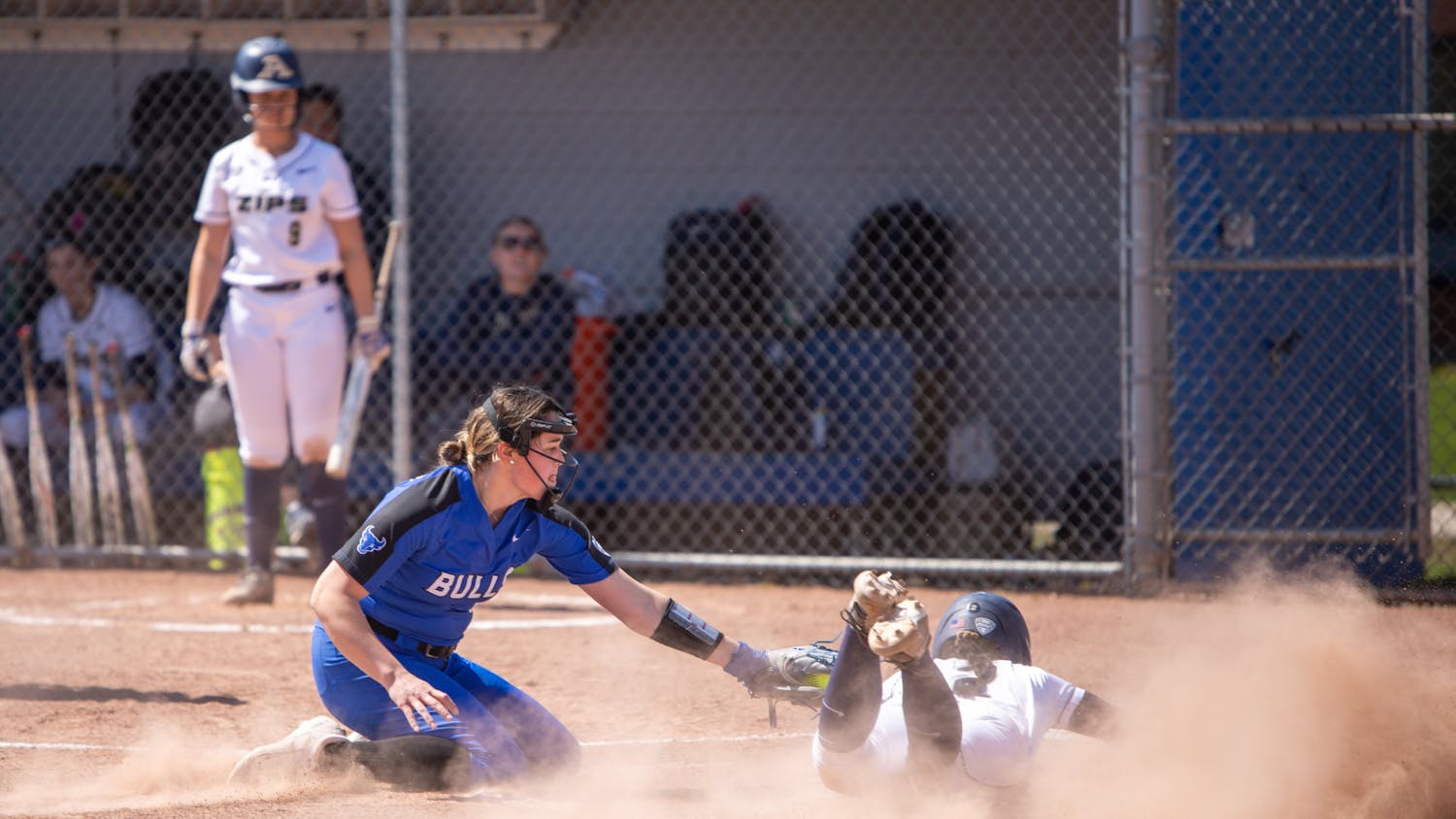A UB football player’s lawsuit against the university –– a case that could have statewide and even national implications –– continues to wind its way through the courts.
State Supreme Court Judge E. Jeannette Ogden transferred the case to the New York State Appellate Division Feb. 2 after hearing from UB’s counsel, Attorney General Eric T. Schneiderman and Assistant Attorney General Melissa H. Thore. Schneiderman and Thore argued Jan. 30 that the case fell under the appellate jurisdiction because it was based on whether or not UB made a decision based on “substantial evidence,” a matter decided by courts of appeals.
UB’s attorneys requested the transfer in their Dec. 14 response to a petition filed Nov. 3 by a UB football player. The student alleged in the petition that UB violated his right to due process after an administrative panel found him guilty of possession of a weapon and harassment in September for allegedly waving an airsoft gun at a group of teammates in July 2017.
The Spectrum agreed last semester not to identify the player for now.
The panel initially suspended the player for two years and revoked his student housing, which he received as part of an athletic scholarship package. The student appealed the school’s decision and eventually received a lessened penalty –– a three-year long disciplinary probation period and housing revocation. Although the panel agreed the punishment was “disproportionate” compared to the crime, it found the student was still guilty and would not reverse its decision.
Joshua Lippes, lead attorney for the student-run nonprofit Sub-Board I, who is representing the student as a private attorney, said he was not surprised by Ogden’s decision and will continue to “push the case forward.”
The appellate court has not given the parties a date to deliver oral arguments and could take anywhere from several weeks to several months to do so.
Lippes argued that UB did not base its decision on substantial evidence and that his client was denied rights afforded to him by New York State law and the U.S. Constitution, including the right to representation during a hearing, the right to cross-examination and the right to view evidence before making an appeal.
Thore and Schneiderman denied Lippes’ claims in their response to his petition, court documents show. They argued that UB acted lawfully and said the court does not have the authority to overturn its decision unless the petitioner can prove it was made “capriciously or arbitrarily.” They also said the court must give the determinations of the administrative agency –– in this case, the office of student conduct and advocacy –– “great deference.”
Thore declined to comment for this story. Several attempts to reach Schneiderman were unsuccessful. UB spokesperson John Della Contrada said the university does not comment on pending litigation.
If the court decides in Lippes’ client’s favor, it could also instruct UB to change its policies and allow students representation, a decision that could have statewide and even national impact.
UB administrators have said that UB’s code of conduct is based on national “best practices” and is meant to offer students and administrators flexibility.
Like UB, many colleges and universities allow students an adviser throughout the disciplinary process, but don’t allow the adviser to speak on the student’s behalf during hearings. At Stony Brook University, for instance, the code of student conduct allows students anadviserbut the adviser cannot “engage in any verbal presentation or questioning,” according to the school’s website. “Attorneys may serve as advisersto the parties subject to the same conditions and restrictions,” the website says.
At nearby SUNY Buffalo State College, the code of conduct advises students that they may be provided a “conduct advocate” free of charge, but these conduct advocates “do not serve as legal counsel, and do not have the ability to address members of a College Hearing Board on behalf of their student.”
UB students from an on-campus Civil Liberties Union chapter brought up the issue of student representation to President Satish Tripathi in September. But the Student-Wide Judiciary is not a court of law, and thus does not need to follow courtroom procedures, administrators say.
A New York State court has ruled in the past that an agency must allow people the right to representation. In a February 2016 ruling, the Supreme Court Appellate Division found that due process considerations “require only that a party to an administrative proceeding be afforded the opportunity to be represented by counsel” in a case filed against the New York City Environmental Control Board. The case cited the New York State Administrative Procedure Act, which reads, “Any person compelled to appear in person or who voluntarily appears before any agency or representative thereof shall be accorded the right to be accompanied, represented and advised by counsel.”
Lippes said he is hopeful for a favorable ruling.
“I know my client hopes some good will comes from this case –– not only him having his decision overturned, but in general, helping the rights of students,” he said. “I guess I should just add that those rights already exist. They’re just not being afforded to students.”
Sarah Crowley is the senior news editor and can be reached at sarah.crowley@ubspectrum.com




